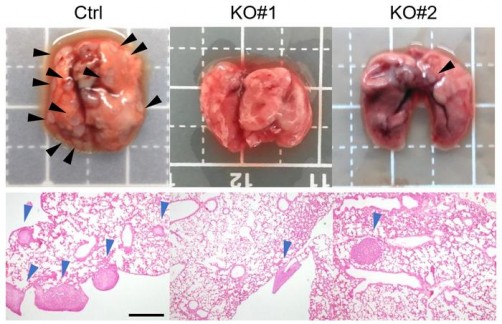Newswise — Mucosal melanoma in humans is a rare form of cancer with a low survival rate. Its study has been challenging because of the absence of comparable cancers in animals for research purposes. However, scientists have recently focused on investigating a protein that is present in both human and canine mucosal melanoma. This particular protein appears to be a key factor contributing to the aggressive nature of the cancer, facilitating the movement and spread of cancer cells. The researchers believe that targeting and eliminating this protein could potentially lead to a promising treatment approach. The findings of this research have been published in the journal "Molecular Cancer Research," which is affiliated with the American Association for Cancer Research.
Melanoma, a form of cancer originating from melanocytes responsible for skin pigmentation, primarily affects the skin and constitutes approximately 90% of all human melanomas. However, a minority of cases involves mucosal melanomas, which can develop in the mucosal linings of various body parts, such as the nose. These mucosal melanomas pose significant challenges as they are difficult to detect and even more challenging to treat, resulting in a five-year survival rate of just 25%.
Due to its rarity and the absence of similar cancer types in animals, research on mucosal melanoma has been exceptionally arduous. The unique characteristics of this cancer have made it challenging to gain insights and develop effective treatment strategies.
A group of researchers, including members from the University of Tokyo's Laboratory of Veterinary Surgery, undertook a study focusing on a prevalent canine cancer and made intriguing discoveries. Their research revealed distinct biological similarities, suggesting two significant implications. Firstly, they identified a viable animal model for studying mucosal melanoma in humans, which could aid in advancing our understanding of this rare cancer. Secondly, both canine and human mucosal melanomas share a specific marker that holds promise as a potential target for inhibiting the spread not only of this type of cancer but also of other related malignancies. This finding opens up new possibilities for developing targeted treatments and improving outcomes for patients.
Assistant Professor Daiki Kato stated that while mucosal melanoma is uncommon in humans, it is relatively prevalent in dogs. Previously, there was no known link between the two, but recent research has uncovered a shared element. This common factor is a protein called podoplanin (PDPN), which is associated with mucosal melanomas. PDPN is a membrane protein, implying that it plays a role in certain cell surface functions. The study revealed that individuals with high levels of PDPN in their mucosal melanomas experienced a more rapid progression of the cancer and had poorer outcomes compared to those with lower levels of the protein. This finding highlights the potential significance of PDPN as a prognostic marker and a potential target for developing treatments in mucosal melanoma cases.
In their investigation, the team focused on understanding the potential reasons behind the deadly nature of PDPN. Their findings indicate that this protein has the ability to metastasize or mobilize tumor cells that would otherwise remain stationary. PDPN induces a transformation in tumor cells, giving them a resemblance to free-moving amoebas, enabling them to navigate through narrow spaces in healthy tissues and disseminate to other locations within the body. This mechanism provides a clear explanation for the rapid and extensive spread of cancer observed in mucosal melanoma cases, shedding light on the aggressive nature of this particular cancer type.
Assistant Professor Daiki Kato mentioned that while they are certain about the occurrence of the phenomenon, the complete underlying mechanism is still not fully understood. The scarcity of human data on mucosal melanoma poses a significant challenge, as the research had to rely on combining different data sets, resulting in a study that may not be as comprehensive as desired. However, their investigations involving PDPN have indeed confirmed their suspicions. By examining mucosal melanoma samples from dogs and eliminating PDPN, they observed a notable reduction in metastasized cells capable of spreading and causing further harm. Although the samples were obtained from dogs, the part of the experiment involving the removal of PDPN was conducted using mice. This cross-species approach provides valuable insights into the potential implications of targeting PDPN in controlling the spread of mucosal melanoma and possibly other related cancers.
The discovery of PDPN as a potential target opens up the possibility of using antibody therapy in mucosal melanoma patients. If new drugs can effectively eliminate PDPN in these patients, it may significantly reduce the cancer's spread and alleviate the associated suffering. The research team is currently focusing on this direction and has plans to conduct clinical trials in dogs within the next few years.
Assistant Professor Daiki Kato emphasized that their efforts extend beyond canine cancers, and they are actively working towards developing treatments for both canine and human cancers. While targeting PDPN is a promising approach, they acknowledge that it is just one avenue of attack in their quest to combat these cancers effectively. Additionally, the significance of their research lies in the establishment of an animal model for a frequently fatal human cancer. This breakthrough provides numerous opportunities for further in-depth studies, offering hope for advancing our understanding and treatment of this challenging form of cancer.
###
